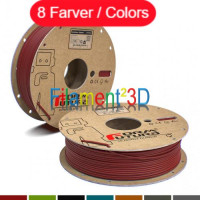Prusament PLA
What can you expect?
Prusament PLA is our own in-house made filament. The whole manufacturing process is closely monitored and tested - we guarantee ±0.02mm precision and highly-consistent colors. You can inspect parameters of every spool we made at prusament.com. Check the sample spool!
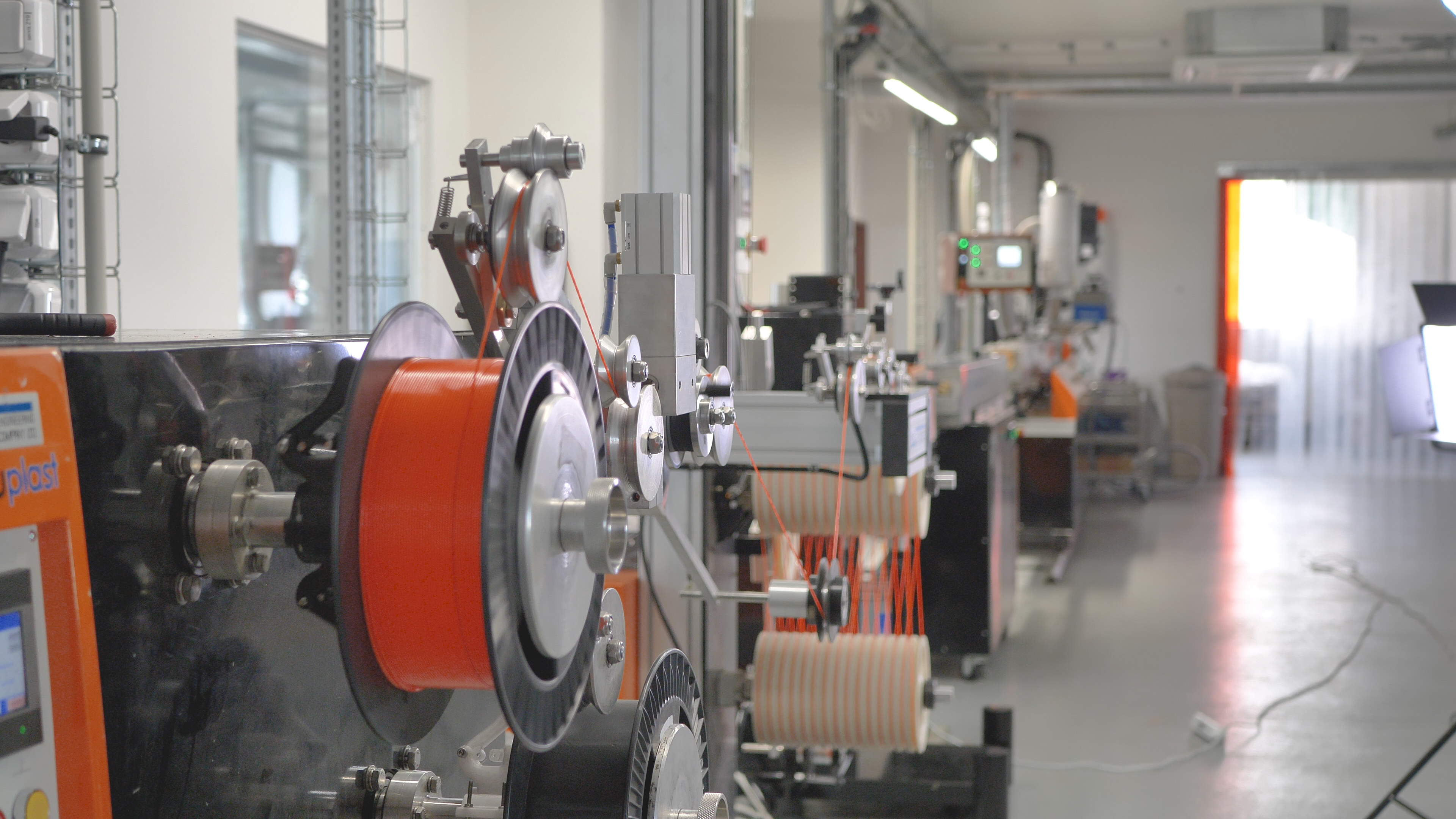
Manufactured In-House By Josef Prusa
We were not satisfied with the quality of filaments on the market. So we decided to make our own! Prusa Research is the only 3D printer manufacturer with its own filament production.
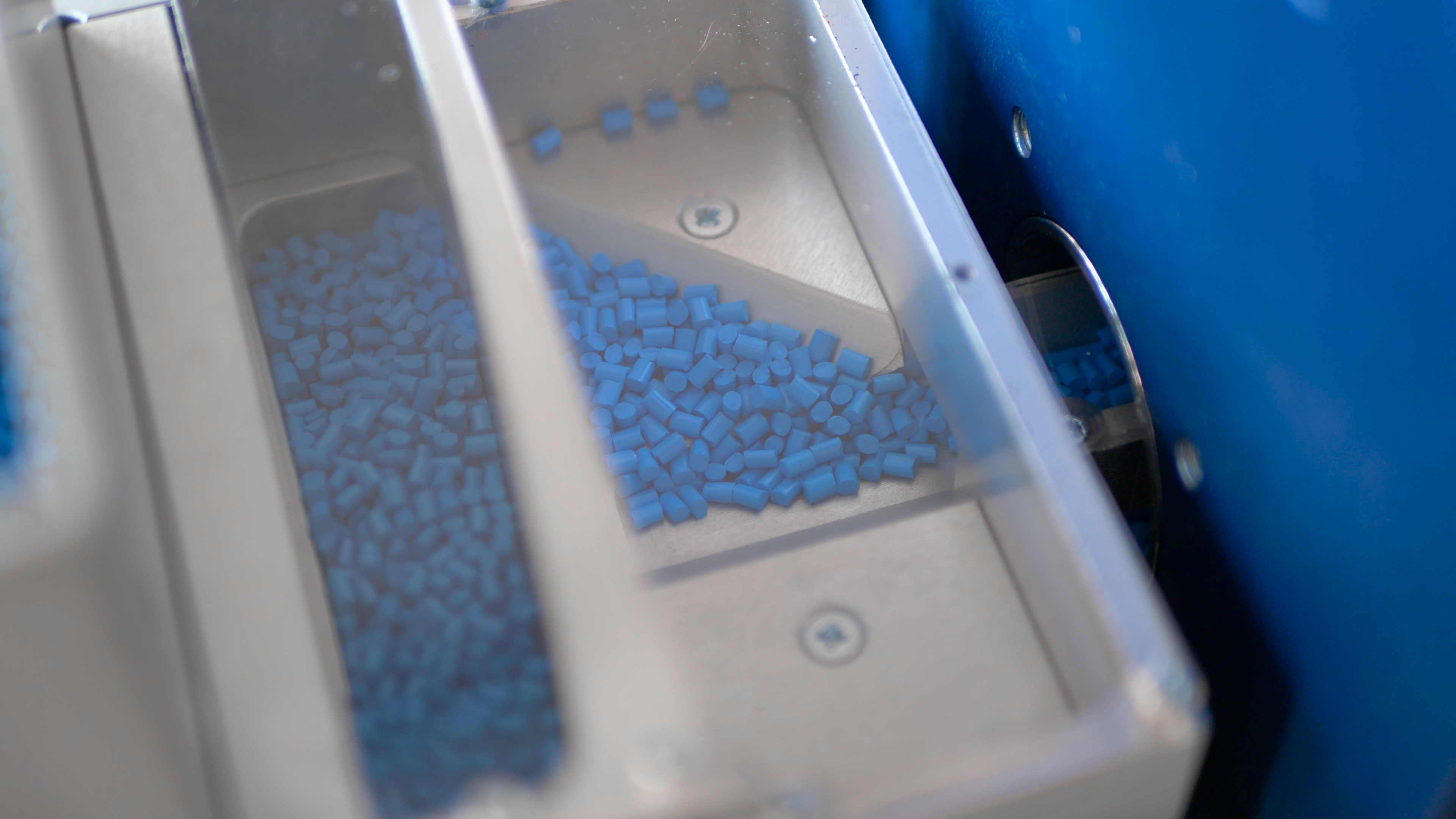
Premium-Grade Materials And Thorough Testing
The whole manufacturing process is closely monitored and tested – string diameter, color consistency, and mechanical properties – to make sure that every spool is perfect.

± 0.02 Mm Manufacturing Guaranteed Precision
We believe the industry standard of 0.05 mm isn’t sufficient for perfect 3D printing. Instead, we guarantee ±0.02mm precision and highly-consistent colors in our filaments.
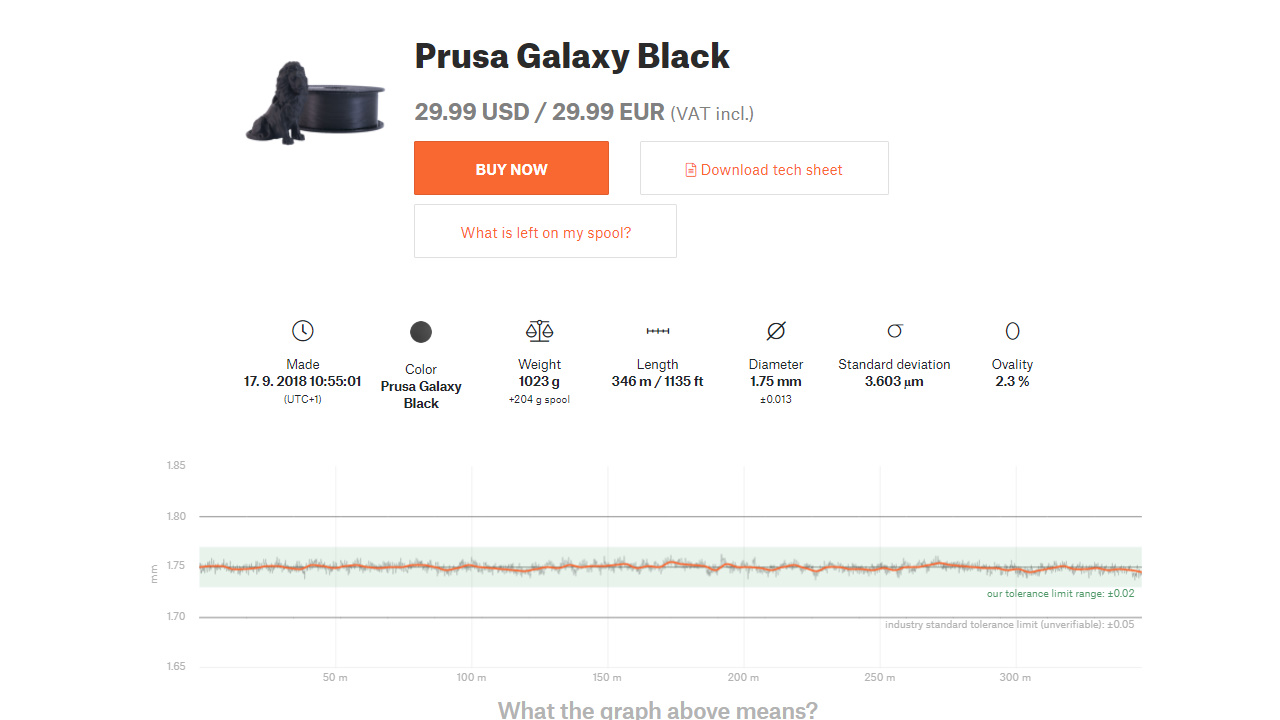
High Quality You Can Check Yourself
We are the only manufacturer that gives the option to inspect parameters of every filament spool. Scan a QR code on the spool to see all details online (check the sample spool).
Read more about Prusament in the article at PrusaPrinters.org or at Prusament.com!
About PLA
PLA melts at a relatively low temperature of about 175 degrees Celsius. Unlike so-called thermoset materials, PLA can be heated past its melting point multiple times with very little degradation. It’s a hard material, but that also means it’s somewhat brittle, and once it breaks, it likes to shatter. Only this material is proven for 50 microns layer height.
However, PLA is not a perfect material and, just like every other plastic, has some disadvantages. The low melting temperature also means low-temperature resistance. Parts start to lose mechanical strength at temperatures over 60 °C.
The combination of being both biodegradable and having low-temperature resistance means that it’s not ideal for outdoor use, not to mention low UV-resistance. Also, PLA is only soluble in chemicals like chloroform or hot benzene. So when connecting multiple pieces, you’re better off using just glue.
Even though PLA is biodegradable, and the material on its own is food safe, we do not suggest to repeatedly drink or eat from your 3D prints. Because of the small fractures on the print surface, bacteria can build up in there over time. You can prevent this by applying a food-safe coating. When post-processing PLA, it’s better to use wet sanding. Without water you'll quickly start heating the plastic by friction, it will melt locally and make it hard to keep sanding.
Printing Setup
| Nozzle | 215 °C |
| Heatbed | 50-60 °C |
Basic Attributes
| Easy to print | Brittle | ||
| Can print tiny parts | Low temperature resistance | ||
| Can print huge objects | Difficult post-processing | ||
| Hard and tough | |||
| Low warping |
Notes
This PLA is made in-house by Prusa Research. We chose Natureworks 4043D resin which is the best and most widely used in 3D printing.
1.75 mm filament is manufactured with precision of +- 0.02 mm
Before printing, make sure the surface of heatbed is clean as described in 3D Printing Handbook.
| Available Colors etc. | |
| Colors | Recycled, Azure Blue, Galaxy Silver, Jet Black, Lipstick Red, Prusa Galaxy Black, Vanilla White, Army Green, Galaxy Purple, Gentleman Grey, Lime Green, Ms Pink, Oh My Gold, Opal Green, Pearl Mouse, Pineapple Yellow, Prusa Orange, Royal Blue, Simply Green, Viva La Bronze, Mystic Brown, Gravity Grey, Mystic Green |
Prusament PLA
- Brand: Prusa
- Product Code: Prusament PLA
- Availability: In Stock
-
Starting From 268,75DKr
- Ex Tax: 215,00DKr

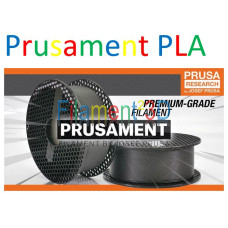

-74x74.jpg)
-74x74.jpg)
-74x74.jpg)
-74x74.jpg)

-74x74.jpg)

-74x74.jpg)
-74x74.jpg)


-74x74.jpg)
-74x74.jpg)
-74x74.jpg)
-74x74.jpg)
-74x74.jpg)

-74x74.jpg)

-74x74.jpg)
-74x74.jpg)
-74x74.jpg)

-74x74.jpg)

-74x74.jpg)
-74x74.jpg)

-74x74.jpg)


-74x74.jpg)

-74x74.jpg)
-74x74.jpg)
-74x74.jpg)


-74x74.jpg)




-74x74.jpg)
-74x74.jpg)
-74x74.jpg)
-74x74.jpg)
-74x74.jpg)

-74x74.jpg)



-74x74.jpg)

-74x74.jpg)
-74x74.jpg)
-74x74.jpg)



-74x74.jpg)

-74x74.jpg)
-74x74.jpg)

-74x74.jpg)

-74x74.jpg)
-74x74.jpg)

-74x74.jpg)

-74x74.jpg)

-74x74.jpg)
-74x74.jpg)

-74x74.jpg)





